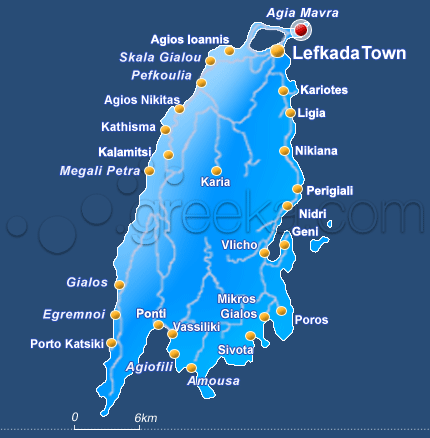from Turkish POWs returning from Greece in June-July
1923.//

The writer was captured by the Greeks east of Afyon, ostensibly
in the "Italian Zone" in the Anatolia of 1920.
The statement of a lieutenant:
Şükrü of the Hamzaoğulları from Yeni Cemazir village. This is his
statement about his observations
during captivity:
I was taken prisoner while injured with two
other soldiers, whose names
I don’t know, in the vicinity of Nasuçal, east of
Afyonkarahisar. I was
transported to
İzmir, Piraeus, Athens and then Lefkada Island, where
there were about 270 officer
prisoners.
During our movement through Greece we
learned that there were about
600 civilian prisoners on Corfu Island and that their
situation was
particularly deplorable. I
don’t know who they are or where they are
from.
It was said that 50-60 people were dying every day. I heard in
Izmir that a ship was being sent
for their return to their countries. I
have
no information about how many prisoners there are on other islands.

Lefkada and Corfu Islands, off Greece's west coast.
Officers were given just 450 franks for
food and salary. They had to pay
for
their clothes out of this money. The
soldiers’ food was not very good
at all.
I cannot say that the treatment we experienced was at all humane.
We were subjected to all kinds of torture and
degradation. Our
complaints were about
food and increasing our salaries but these fell on
deaf ears.
My Capture:
I fell in to hands of the Greeks in the
vicinity of Nasu Çalı in an injured
condition.
They dragged me to the rear and while I was there I was
subjected to all
kinds of degradation and tortured with beatings. They
didn’t bring me to the hospital. I found out that friends like me who
were
taken prisoner on the roads were given similar treatment. They
killed a large portion of the prisoners
and especially injured ones. I
witnessed this myself. We spent quite a
few days waiting in Kütahya
under these conditions of oppression and
degradation. Finally we were
taken to
Izmir and from there, together with 30 other officers whose
names I don’t know,
to Piraeus. The brutality and torture
continued
there. In fact, in
?Yazapigmaz? prison in Athens, were were left without
any food for 3 days. We stayed in this prison for 15 days, after
which we
were transported to the fortress on Lefkada Island.

Agia Mavra Fortress, red dot at top, was the Turks' prison on
Lekada Island.
During the 20 months of my imprisonment in
this fortress, the Greeks
relentlessly brutalized and tortured us. We were prisoners not of the
Greek government, but of a sergeant and the local Greeks who came to
the fortress now
and then would ridicule the level of our degredation and
incite the Greeks to
be even more brutal toward us. Thank God, when
our heroic army re-took Izmir
this type of treatment was relaxed a bit.
Subsequently, we were resettled from the fortress to within the town.
Two months later the prisoner exchange
began. This is all the general
and
abridged information about the inauspicious life we experienced in
Greece that
I can provide.
Another soldier's story:
Osmanoğlu Hasan, of the Kosif
Oğullar from Ayasofya quarter of
Trabzon and a medic in the 55th Regiment 1st Battalion, returned from
captivity. He has stated that he joined the war in
Izmir’s Söke area and
was taken prisoner there;
he was transported to the city of Piraeus in
Greece and put in with a group
of 500 other prisoners; ten soldiers
were allocated to a tent and, under guard, these 500 people lived their
lives
this way for a year; those in one tent
were not allowed to converse
with others in another tent and sick and healthy
prisoners were not
separated; the Greeks
would say “you’re avoiding work” and shoot
them dead; sick soldiers who went to the hospital were
not looked
after and died; Most of the
members of this prisoner group were from
the populace of Çanakkale and
Bursa. Subsequently, they were sent to
Istanbul; there is no information about prisoners in various places.
This soldier was captured near Söke, transported to Izmir and
from there to Pireaus, the port of Athens.

Hiç yorum yok:
Yorum Gönder